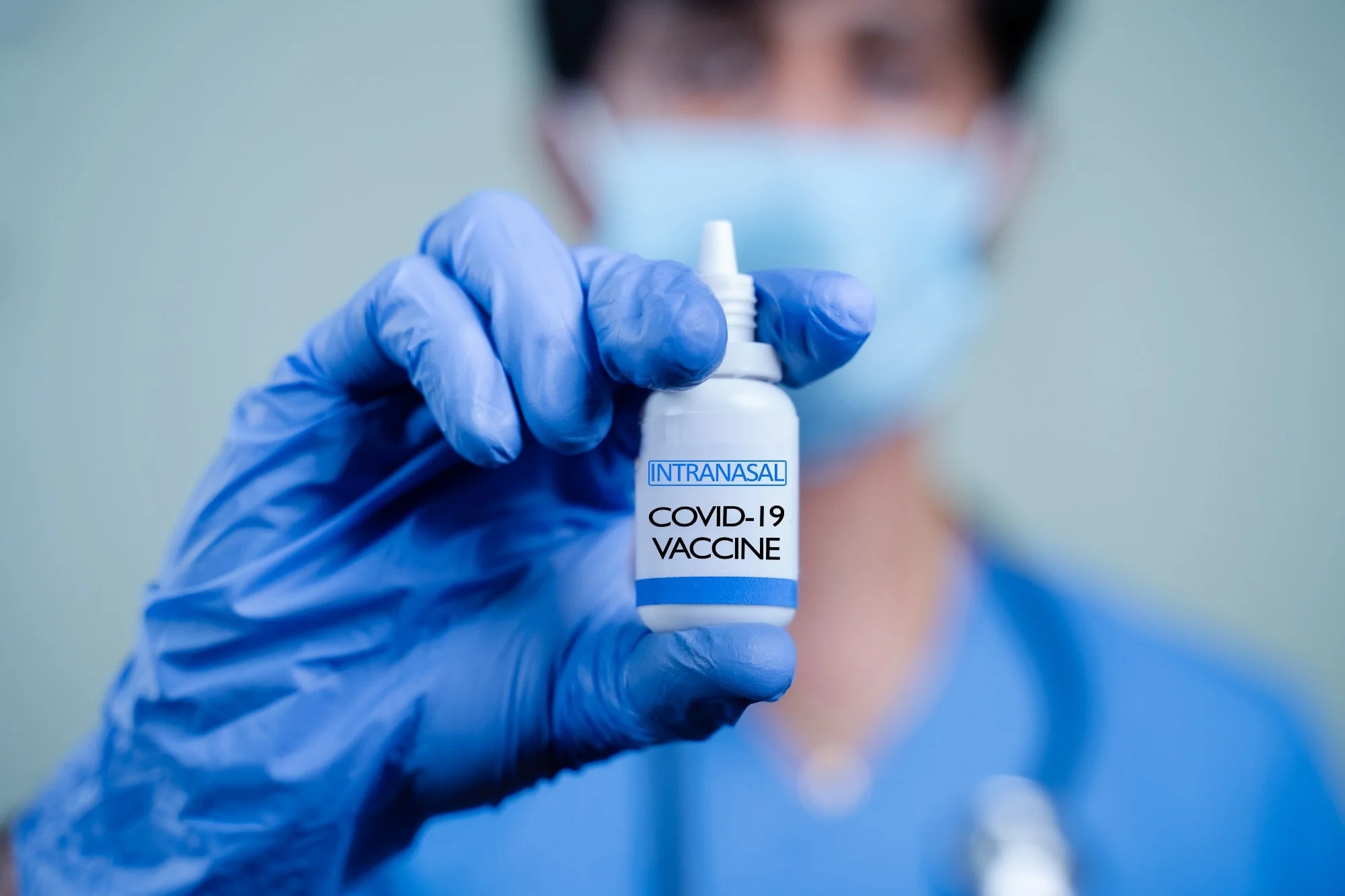World's first finger-prick test for detection of deadly brain tumors
SOURCE: HTTPS://INTERESTINGENGINEERING.COM/
NOV 06, 2023
Inhalable vaccine against Covid-19 opens the way to lung treatments
SOURCE: HTTPS://NATIONWORLDNEWS.COM/
SEP 05, 2023

A research team from Yale University, USA, developed one Inhalable vaccine that successfully protects against the Covid-19 virus. It also opens the door to gene replacement therapy and other lung treatments.
The results of the study, led by Professor Mark Saltzman, are published in Science Translational Medicine. For the vaccine, researchers showed that two intranasal doses of the treatment, made with nanoparticles carrying the Covid mRNA vaccine, were effective mice.
In turn, they showed that an inhalable system allows for the delivery of mRNA minimally invasive and specifically aimed at the lungs potentially applicable to numerous lung diseases in addition to Covid-19.
This is a significant advance that scientists have made problems to develop lung-targeted mRNA therapies. Typically, these therapies have a low transfection efficiency, ie only a small fraction of the administered nucleic acids are converted into cells, leading to the expression of the encoded protein.
Also, the nanoparticles that carry the mRNA have caused inflammation and other problems in the past. The group removed this obstacle partly using a nanoparticle of poly(amine-co-ester)-polyplexes or PACE, a biocompatible and highly customizable polymer.
Saltzman previously worked with the lab of Akiko Iwasaki, the Sterling Professor of Immunology, on what Iwasaki calls a “prime-and-spike” Covid-19 vaccine delivery system. The “first” half of the system involves injections of the mRNA vaccine into a muscle, which millions of people have already received. These vaccines were followed by known spike proteins, or spike mRNAs, derived from the coronavirus and sprayed directly into the nose.
In their new study, the researchers showed that the injection is not necessary to provide protection. “There is no intramuscular injection in the new report,” Saltzman said. “We simply administered two doses intranasally, a prime and a boost dose, and we received a highly protective immune response. But we also show that, in general, different types of mRNA can be delivered.
“So it’s not only good for a vaccine, but potentially for gene replacement therapy for diseases like cystic fibrosis and gene editing.” We’re using an example of a vaccine to show that it works, but it opens the door to other types of interventions.”
LATEST NEWS
WHAT'S TRENDING


Data Science
5 Imaginative Data Science Projects That Can Make Your Portfolio Stand Out
OCT 05, 2022

SOURCE: HTTPS://INTERESTINGENGINEERING.COM/
NOV 06, 2023
SOURCE: HTTPS://WWW.SCIENCEDAILY.COM/
OCT 02, 2023
SOURCE: HTTPS://WWW.SCIENCEDAILY.COM/
SEP 20, 2023
SOURCE: HTTPS://WWW.SCIENCEDAILY.COM/
SEP 21, 2023
SOURCE: HTTPS://WWW.MEDICALNEWSTODAY.COM/
AUG 30, 2023
SOURCE: HTTPS://WWW.DIABETES.CO.UK/
AUG 29, 2023
SOURCE: HTTPS://WWW.SCIENCEDAILY.COM/
AUG 22, 2023
SOURCE: HTTPS://WWW.SCIENCEDAILY.COM/
AUG 21, 2023